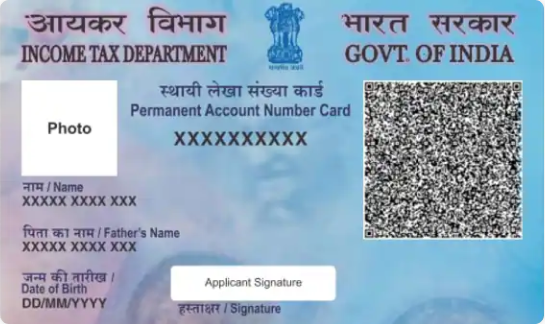Register Your Section 8 Company: Eligibility, Process & Benefits
Key characteristics and features of a Section 8 Company include:
To qualify for Farmer Producer Company (FPC) registration in India, certain criteria must be met. The qualifications for FPC registration are as follows:
Limited Liability
The liability of the members of a Section 8 Company is limited to the extent of their shareholding or guarantee, ensuring personal assets are protected.
No Dividends
The profits earned by a Section 8 Company cannot be distributed as dividends to its members. Instead, they are used for furthering the organization’s objectives.
Compliance Requirements
Section 8 Companies have certain compliance obligations, such as maintaining proper accounting records, conducting annual audits, and submitting annual reports to regulatory authorities.
Non-profit Nature
Section 8 Companies are formed for charitable, scientific, or social welfare purposes and do not have a profit-making motive.
Restrictions on a Section 8 Company
To qualify for Farmer Producer Company (FPC) registration in India, certain criteria must be met. The qualifications for FPC registration are as follows:
Utilization of Funds
The funds of a Section 8 Company should be utilized solely for charitable or social welfare purposes. The organization must maintain proper financial records and ensure that funds are used in accordance with the stated objectives.
Alteration of Objects
The objects and purposes of a Section 8 Company cannot be altered without the prior approval of the Registrar of Companies (RoC). Any change in the objects must be in line with the organization’s non-profit nature and require proper documentation and compliance.
Restriction on Transfer of Shares
Section 8 Companies may have restrictions on the transfer of shares or membership, ensuring that control remains with those who are committed to the organization’s objectives and not for personal gain.
No Distribution of Profits
The primary restriction is that a Section 8 Company cannot distribute profits among its members. Any income generated must be utilized for promoting the organization’s objectives and cannot be distributed as dividends or profits.
There are certain general requirements that need to be fulfilled. Here are the key qualifications or prerequisites for Section 8 Company registration:
While choosing a name for your Section 8 Company in India, it is important to follow certain guidelines to ensure compliance with the rules and regulations. Here are some guidelines to consider when selecting a name:

Unique and Descriptive
The name should be unique and distinctive, not resembling or sounding similar to any existing company, trademark, or registered brand. It should also reflect the nature of your organization’s activities and objectives.

No Offensive or Prohibited Terms
The name should not contain any offensive, vulgar, or objectionable words or phrases. It should also not violate any provisions of the law or be against public interest.

Relevant Keywords
Consider including keywords or terms that describe the sector or area of work of your organization. This can help convey the purpose or focus of your Section 8 Company.

Check Availability
Before finalizing a name, conduct a thorough search to ensure it is not already in use by another company or registered as a trademark.

Legal and Regulatory Compliance
Ensure that the name adheres to the guidelines and rules set forth by the Ministry of Corporate Affairs (MCA) and the Companies Act, 2013.

Name Reservation
Once you have chosen a name, it is advisable to reserve it with the Registrar of Companies (RoC) through the MCA website. This step helps ensure that the name is not taken by another organization during the registration process.
To obtain a license for a Section 8 Company in India, you need to submit the following documents along with the application:
Documents
✔ Memorandum of Association (MoA)
✔ Articles of Association (AoA)
✔ Declaration by Directors
✔ Proof of Registered Office
✔ Details of Directors and Members
✔ Financial Statements
✔ Statement of Assets and Liabilities
✔ Other Supporting Documents

In a Section 8 Company in India, there are directors and shareholders who play key roles in the management and decision-making processes. Here’s an overview of the directors and shareholders in a Section 8 Company:
Directors
Shareholders
The registered office is a critical component of a Section 8 Company in India. Here’s an overview of the registered office and its significance:
Introduction:
A Section 8 Company, also known as a nonprofit company or a not-for-profit company, is a type of organization that is established for promoting charitable, scientific, or social welfare objectives. The name “Section 8 Company” refers to Section 8 of the Companies Act, 2013 in India, under which these organizations are incorporated.
The primary objective of a Section 8 Company is to work for the betterment of society and not to generate profits. Any income or revenue earned by the organization is utilized for the promotion of its objectives, and the surplus, if any, is reinvested for the organization’s growth and development.
Key characteristics and features of a Section 8 Company include:
Non-profit Nature: Section 8 Companies are formed for charitable, scientific, or social welfare purposes and do not have a profit-making motive.
Limited Liability: The liability of the members of a Section 8 Company is limited to the extent of their shareholding or guarantee, ensuring personal assets are protected.
No Dividends: The profits earned by a Section 8 Company cannot be distributed as dividends to its members. Instead, they are used for furthering the organization’s objectives.
Compliance Requirements: Section 8 Companies have certain compliance obligations, such as maintaining proper accounting records, conducting annual audits, and submitting annual reports to regulatory authorities.
Restrictions on a Section 8 Company:
No Distribution of Profits: The primary restriction is that a Section 8 Company cannot distribute profits among its members. Any income generated must be utilized for promoting the organization’s objectives and cannot be distributed as dividends or profits.
Utilization of Funds: The funds of a Section 8 Company should be utilized solely for charitable or social welfare purposes. The organization must maintain proper financial records and ensure that funds are used in accordance with the stated objectives.
Alteration of Objects: The objects and purposes of a Section 8 Company cannot be altered without the prior approval of the Registrar of Companies (RoC). Any change in the objects must be in line with the organization’s nonprofit nature and require proper documentation and compliance.
Restriction on Transfer of Shares: Section 8 Companies may have restrictions on the transfer of shares or membership, ensuring that control remains with those who are committed to the organization’s objectives and not for personal gain.
Eligibility Criteria:
There are certain general requirements that need to be fulfilled. Here are the key qualifications or prerequisites for Section 8 Company registration:
Minimum Directors: A Section 8 Company must have a minimum of two directors for a private company and a minimum of three directors for a public company.
Minimum Members: A Section 8 Company should have a minimum of two members for a private company and a minimum of seven members for a public company.
No Minimum Share Capital: There is no minimum capital requirement for Section 8 Companies. The company can be registered with any amount of capital deemed appropriate for its operations and objectives.
Registered Office: The Section 8 Company must have a registered office address in India.
Charitable or Social Objectives: The Section 8 Company should have charitable, scientific, or social welfare objectives.
Compliance with Companies Act: The organization should comply with the regulations and requirements specified in the Companies Act, 2013.
Name Reservation:
While choosing a name for your Section 8 Company in India, it is important to follow certain guidelines to ensure compliance with the rules and regulations. Here are some guidelines to consider when selecting a name:
Unique and Descriptive: The name should be unique and distinctive, not resembling or sounding similar to any existing company, trademark, or registered brand. It should also reflect the nature of your organization’s activities and objectives.
No Offensive or Prohibited Terms: The name should not contain any offensive, vulgar, or objectionable words or phrases. It should also not violate any provisions of the law or be against public interest.
Relevant Keywords: Consider including keywords or terms that describe the sector or area of work of your organization. This can help convey the purpose or focus of your Section 8 Company.
Check Availability: Before finalizing a name, conduct a thorough search to ensure it is not already in use by another company or registered as a trademark.
Legal and Regulatory Compliance: Ensure that the name adheres to the guidelines and rules set forth by the Ministry of Corporate Affairs (MCA) and the Companies Act, 2013. Names that comply with these regulations are more likely to be approved during the registration process.
Name Reservation: Once you have chosen a name, it is advisable to reserve it with the Registrar of Companies (RoC) through the MCA website. This step helps ensure that the name is not taken by another organization during the registration process.
Application for License:
To obtain a license for a Section 8 Company in India, you need to submit the following documents along with the application:
- Memorandum of Association (MoA)
- Articles of Association (AoA)
- Declaration by Directors
- Proof of Registered Office
- Details of Directors and Members
- Financial Statements
- Statement of Assets and Liabilities
- Other Supporting Documents
Directors and Shareholders:
In a Section 8 Company in India, there are directors and shareholders who play key roles in the management and decision-making processes. Here’s an overview of the directors and shareholders in a Section 8 Company:
Directors
Minimum Number: A Section 8 Company must have a minimum of two directors for a private company and a minimum of three directors for a public company.
Qualifications: Directors of a Section 8 Company must be individuals, not entities. At least one of the directors should be a resident of India, meaning they have stayed in India for a minimum number of days during the previous financial year.
Roles and Responsibilities: Directors are responsible for ensuring the company’s compliance with legal and regulatory requirements. They make strategic decisions, oversee the operations, and act in the best interest of the organization.
Appointment and Removal: Directors are appointed by the shareholders through resolutions passed in general meetings.
Shareholders:
Minimum Number: A Section 8 Company must have a minimum of two shareholders for a private company and a minimum of seven shareholders for a public company.
Ownership and Voting Rights: Shareholders are the owners of the company and hold shares in proportion to their investments. They have the right to attend and vote in general meetings of the company.
Dividends and Profit-Sharing: In a Section 8 Company, shareholders do not receive dividends or profits from the company’s operations.
Transfer of Shares: Shares of a Section 8 Company are transferable, subject to any restrictions mentioned in the Articles of Association. Shareholders can transfer their shares to other eligible individuals or entities as per the provisions specified in the company’s documents.
Registered Office:
The registered office is a critical component of a Section 8 Company in India. Here’s an overview of the registered office and its significance:
Requirement: Every Section 8 Company must have a registered office in India. It serves as the official address of the company for all communications, notices, and legal purposes.
Validity and Accessibility: The registered office should be a valid and accessible physical address. It must be capable of receiving official correspondence, including letters, notices, and legal documents.
Verification and Documentation: During the registration process, you need to provide documentary evidence of the registered office.
Change of Registered Office: If there is any change in the registered office address after the incorporation of the Section 8 Company, you must notify the Registrar of Companies (RoC) within a specified time frame and update the necessary documents accordingly.
Board Meetings and Statutory Registers: The registered office is typically the venue for conducting board meetings and maintaining statutory registers, such as the Register of Members, Register of Directors, and Register of Charges.
Communication Address: The registered office address is also used as the communication address for the company. It should be mentioned in all official documents, including letterheads, invoices, and legal contracts.
Jurisdiction of RoC: The jurisdiction of the Registrar of Companies (RoC) is determined based on the location of the registered office. The RoC for that jurisdiction will handle the company’s registration, compliance, and regulatory matters.
Display of Address: The registered office address must be prominently displayed at the registered office premises and must be visible to visitors, government officials, and other stakeholders.



